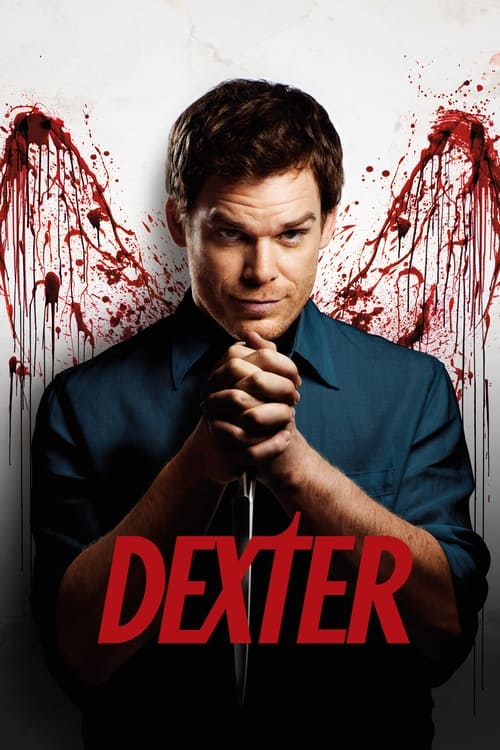
Ask Your Own Question
What is the plot?
In the opening of Season 6, Dexter Morgan is seen living a seemingly normal life as a blood spatter analyst for Miami Metro Police Department. He is also a father to his son, Harrison, and is trying to balance his dark urges with his responsibilities as a parent. Dexter's sister, Deborah Morgan, is now a lieutenant and is dealing with the pressures of her job while also trying to support Dexter. The season begins with Dexter feeling the weight of his dual life, as he struggles to maintain his facade of normalcy.
The main plot kicks off when a series of gruesome murders occur, all linked to a mysterious figure known as the Doomsday Killer. This killer, who is later revealed to be Travis Marshall, is inspired by biblical prophecies and is committing murders that reflect the Book of Revelation. Dexter becomes intrigued by the case and begins to investigate, feeling the pull of his Dark Passenger as he seeks to understand the mind of the killer.
As Dexter delves deeper into the investigation, he discovers that Travis has a partner, Professor Gellar, who is also involved in the killings. Dexter's pursuit of the Doomsday Killer leads him to a church where he witnesses a ritualistic murder. This event heightens Dexter's interest in the case, and he becomes determined to stop the killer before more innocent lives are taken.
Meanwhile, Dexter's personal life becomes increasingly complicated. He is trying to maintain a relationship with his girlfriend, Ashley, while also dealing with the challenges of being a single father. His relationship with Deborah is strained as she becomes more involved in the investigation and begins to suspect that Dexter may be hiding something from her.
As the season progresses, Dexter learns more about Travis and Gellar's motivations. He discovers that Gellar is not just a mentor to Travis but is actually dead, a figment of Travis's imagination. This revelation adds a layer of complexity to Dexter's understanding of the killer, as he realizes that Travis is acting out of a deep-seated need for validation and control.
In a pivotal moment, Dexter confronts Travis in a tense showdown. Dexter manages to capture Travis, but instead of killing him, he decides to use him to find Gellar's location. This decision reflects Dexter's internal struggle between his desire to kill and his need to understand the mind of a killer. Dexter's choice to spare Travis leads to a series of events that ultimately culminate in a dramatic confrontation.
As the season nears its climax, Dexter discovers that Travis has taken Harrison hostage, using him as leverage to escape. This forces Dexter into a desperate situation where he must confront his own fears as a father. In a tense sequence, Dexter tracks down Travis to an abandoned church where a final showdown occurs. Dexter fights Travis, and after a brutal struggle, he manages to overpower him and rescue Harrison.
The season concludes with Dexter grappling with the aftermath of the confrontation. He is left to reflect on the choices he made and the impact they have on his life and his family. The emotional weight of the season culminates in Dexter's realization that he cannot escape his Dark Passenger, setting the stage for future conflicts and challenges in his life as a vigilante killer.
What is the ending?
At the end of "Dexter" Season 6, Dexter Morgan confronts the Doomsday Killer, Travis Marshall, leading to a climactic showdown. Dexter ultimately kills Travis, but not before a series of intense events unfold, including the revelation of Travis's true nature and the impact of his actions on Dexter's life. The season concludes with Dexter grappling with his own identity and the consequences of his choices.
As the season draws to a close, the tension escalates in the city of Miami, where Dexter Morgan is on the trail of the Doomsday Killer, Travis Marshall. The episode begins with Dexter receiving a call from his sister, Deborah Morgan, who is deeply concerned about the escalating murders linked to Travis. The atmosphere is thick with urgency as Dexter races against time to stop Travis from completing his deadly ritual.
In a pivotal scene, Dexter discovers that Travis has taken his own sister, a shocking twist that heightens the stakes. Dexter's internal struggle is palpable as he balances his role as a brother and a vigilante. He knows he must act quickly to save her, but he is also aware of the darkness that lies within him.
The climax unfolds in a deserted church, where Travis has set up a final tableau of his Doomsday vision. Dexter arrives just in time to confront Travis, who is in the midst of a psychotic breakdown, believing he is fulfilling a divine mission. The confrontation is intense, with Travis attempting to justify his actions through a twisted interpretation of religious prophecy. Dexter, however, is resolute; he cannot allow Travis to continue his reign of terror.
In a dramatic turn, Dexter manages to subdue Travis, leading to a tense moment where he must decide whether to kill him or not. The struggle is not just physical but also moral, as Dexter reflects on the implications of his actions. Ultimately, Dexter makes the choice to kill Travis, a decision that underscores his complex relationship with his own dark urges.
As the dust settles, Dexter is left to grapple with the aftermath of his actions. He returns home, where he finds his sister Deborah waiting for him. Their reunion is fraught with unspoken tension, as Deborah is still unaware of the full extent of Dexter's secret life. The season ends with Dexter looking out over the Miami skyline, contemplating the duality of his existence as both a protector and a predator.
In the final moments, the camera lingers on Dexter's face, capturing the conflict within him. The season closes with a sense of unresolved tension, leaving viewers to ponder the implications of Dexter's choices and the path that lies ahead for him and those around him.
Throughout the season, key characters such as Deborah Morgan, who is increasingly drawn into Dexter's world, and Travis Marshall, whose descent into madness serves as a catalyst for Dexter's own struggles, play crucial roles in shaping the narrative. The fate of each character is intertwined with Dexter's journey, culminating in a powerful exploration of morality, identity, and the consequences of one's actions.
Is there a post-credit scene?
In "Dexter" Season 6, there is no post-credit scene following the episodes. The season concludes with the final moments of the last episode, "This Is the Way the World Ends," where Dexter faces significant challenges and revelations. The focus remains on the unfolding drama and character developments throughout the episode, leading to a tense and impactful conclusion without any additional scenes after the credits.
What is the significance of the Doomsday Killer in Season 6?
The Doomsday Killer, also known as Travis Marshall, is a central antagonist in Season 6. He is a religious fanatic who believes he is fulfilling a prophecy by committing murders that mirror the Book of Revelation. His character is pivotal as he represents a new kind of threat to Dexter, blending psychological manipulation with a twisted sense of purpose.
How does Dexter's relationship with his sister Debra evolve in Season 6?
In Season 6, Dexter's relationship with Debra becomes increasingly strained as she grapples with her feelings about his dark side. Debra is unaware of Dexter's true nature as a serial killer, but she begins to suspect that he is hiding something significant. This tension culminates in moments where Debra's trust in Dexter is tested, especially as she becomes more involved in the investigation of the Doomsday Killer.
What role does Professor Gellar play in the storyline of Season 6?
Professor James Gellar is introduced as Travis Marshall's mentor and a key figure in the Doomsday Killer's murders. He is portrayed as a charismatic yet sinister character who influences Travis's actions. As the season progresses, it is revealed that Gellar is not just a guiding figure but also a manifestation of Travis's fractured psyche, leading to a shocking twist regarding his actual existence.
What are the key murders committed by the Doomsday Killer in Season 6?
The Doomsday Killer commits several key murders throughout Season 6, each designed to reflect biblical prophecies. Notable murders include the ritualistic killings of a couple, which are staged to represent the Four Horsemen of the Apocalypse. These gruesome acts serve as a catalyst for Dexter's investigation and highlight the killer's delusional belief in a divine mission.
How does Dexter confront his own morality in Season 6?
Throughout Season 6, Dexter faces challenges that force him to confront his own moral code. As he hunts the Doomsday Killer, he grapples with the implications of his actions and the nature of justice. This internal conflict is heightened by the presence of the Doomsday Killer's religious motivations, which contrast sharply with Dexter's own justifications for killing.
Is this family friendly?
In "Dexter" Season 6, there are several scenes and themes that may be considered objectionable or upsetting for children or sensitive viewers. Here are some aspects to be aware of:
-
Graphic Violence: The show features scenes of murder and bloodshed, including depictions of Dexter's killings and the aftermath, which can be quite graphic and intense.
-
Murder Themes: The central premise revolves around a vigilante serial killer, which includes discussions and portrayals of murder, death, and the psychological aspects of being a killer.
-
Dark Themes: The season explores themes of morality, justice, and the nature of evil, which may be unsettling for younger audiences.
-
Religious Imagery: There are references to religious themes and symbols, particularly with the character of the Doomsday Killer, which may be disturbing to some viewers.
-
Adult Language: The dialogue includes strong language and adult conversations that may not be suitable for children.
-
Sexual Content: There are scenes that involve sexual situations and adult relationships, which may not be appropriate for younger viewers.
These elements contribute to the overall dark and mature tone of the series, making it more suitable for adult audiences.



















